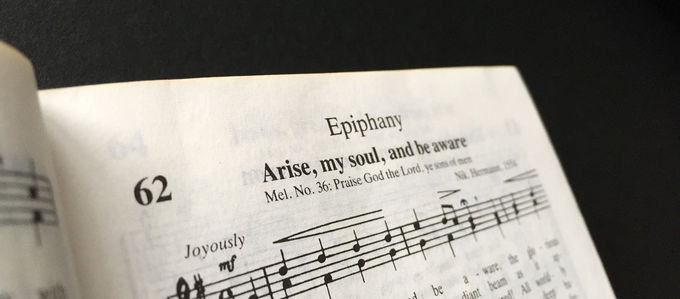The Christmas before Christmas
Today, 6 January marks Epiphany, a religious festival that is not all that well known in New Apostolic circles, but crops up in our publications now and then. It is one of the oldest Christian festivals.

In principle, Epiphany─the name used by the ancient church─is the forerunner of Christmas. The word comes from Ancient Greek and means “manifestation” or “appearance”, in the sense of self-manifestation. Already around the year 300─especially in the eastern part of the Mediterranean─ January 6th was celebrated as the day of Jesus’ birth, the manifestation of Christ to the world.
In the old English hymnal of the New Apostolic Church, hymns No. 62 to 68, were grouped under the category “Epiphany”, and dealt primarily with the resplendent light and glow of the birth of the Saviour of mankind. “Jesus, great and wondrous star” is a typical example in this category.
Before long, Epiphany received stiff competition. Starting in the fifth century, the celebration of Christmas started to spread. Under the influence of the western (Roman) church, December 25th asserted itself as the day celebrating the birth of Jesus. Epiphany was redefined as the feast of the baptism of Jesus. In fact, it was during the baptism of Jesus at the Jordan that He first appeared in public and God’s will to save mankind was revealed: “This is my beloved Son, in whom I am well pleased” (Matthew 3: 17; Luke 3: 22).
This is how New Apostolic Christians in eastern Europe observe Epiphany. Bishop Vladimir Groh from Russia reports, for instance, that the festival there is officially called Theophany, meaning “the appearance of God”. In the vernacular, however, it is also called kresheniye Gospodne, meaning “the baptism of the Lord”. Since it is bitterly cold in eastern Europe at this time of the year, people also speak about the Epiphany frosts.
Orthodox Christians celebrate this day with a variety of traditions and practices. People plunge into a hole that has been cut into the ice of frozen rivers and immerse themselves three times. Ice water that has been blessed by priests is filled into bottles that people then take home.
In the New Apostolic congregations, however, Epiphany is not commemorated in any special way, the Bishop explains, who lives in the southern Urals with his wife and two children and calls the congregation of Ufa home. At best, the brothers and sisters greet each other with a special greeting or the officiant may refer to Epiphany at the start of the divine service and mention its spiritual aspects.
Although Epiphany is a very traditional feast in Greece and the day is a public holiday, it plays little or no role for New Apostolic Christians there. This was the result of a survey conducted by the responsible District Evangelist Karl-Heinz Bieker among the rectors in Greece.
A very interesting tradition developed in Italy of all places. The Italian word for Epiphany, Epifania, was corrupted and became Befana, which gave birth to a folk figure: an old woman named Befana delivers gifts and sweets to children like Saint Nick or Santa Claus in other parts of the world. In keeping with the tradition, sweets have been handed out to the children in the congregation of Trezzano sul Naviglio for many years, Francesca, Marco, Luca, Michaela, and Patrizia report. Francesco and Rossella Sperti from the congregation in Milano see a special connection between Christmas and Epiphany: the first is the feast celebrating Jesus’ appearance in the flesh, and the second is His spiritual manifestation.
A posting by Alan Woodman on Facebook shows that this tradition of the ancient church is also of interest in other parts of the world. In a discussion group on music in the New Apostolic Church, the South African brother refers to hymns in the old English hymnal and explains the historical background.
What Epiphany means for New Apostolic Christians today was explored by the Our Family magazine: “Those who celebrate Epiphany in their hearts commemorate their own baptism and sealing,” it says in an article from the year 2007. “The feast represents an invitation to all of us to pay homage to the incarnate God in Jesus Christ, and to follow Him.”
Article info
Author:
Date:
Keywords:
Andreas Rother
06.01.2015
Christian holidays,
Congregational life




